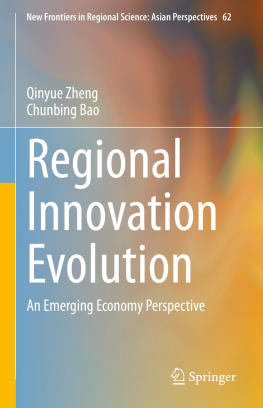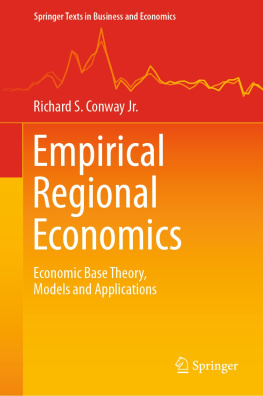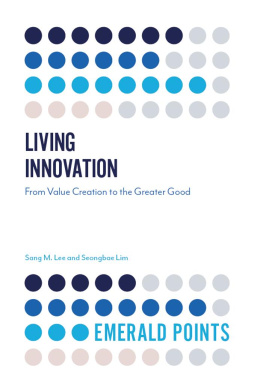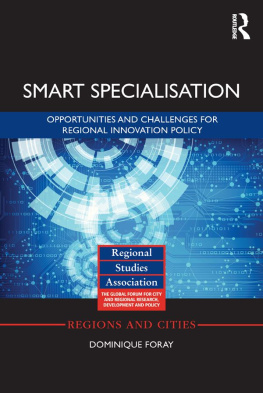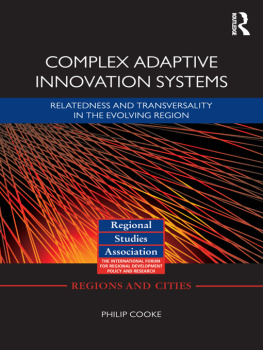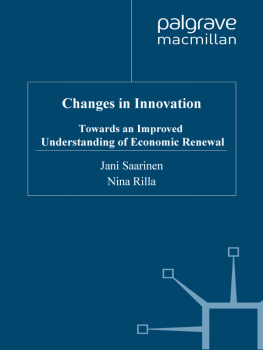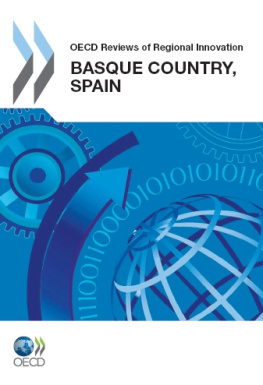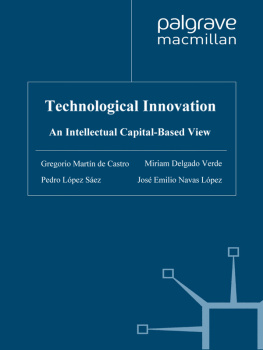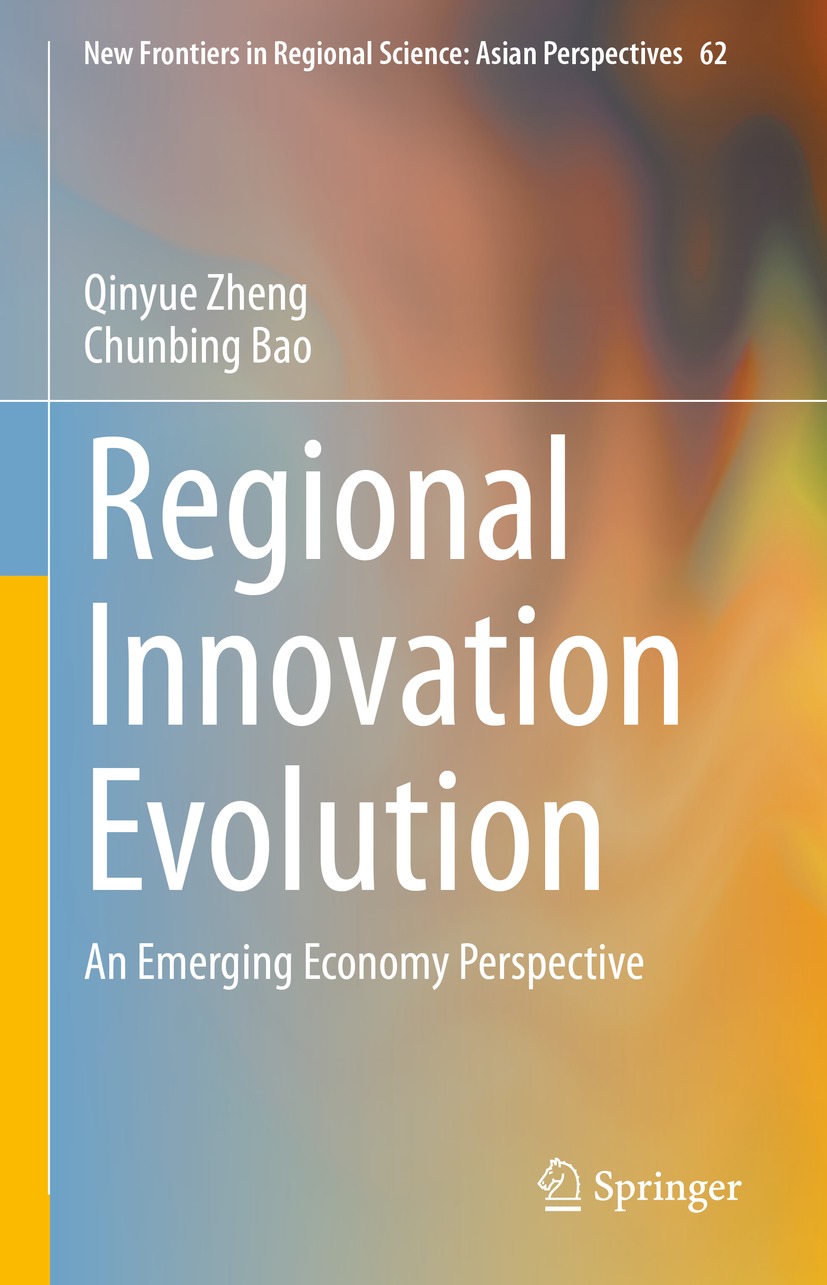Volume 62
New Frontiers in Regional Science: Asian Perspectives
Editor-in-Chief
Yoshiro Higano
University of Tsukuba, Tsukuba, Ibaraki, Japan
This series is a constellation of works by scholars in the field of regional science and in related disciplines specifically focusing on dynamism in Asia.
Asia is the most dynamic part of the world. Japan, Korea, Taiwan, and Singapore experienced rapid and miracle economic growth in the 1970s. Malaysia, Indonesia, and Thailand followed in the 1980s. China, India, and Vietnam are now rising countries in Asia and are even leading the world economy. Due to their rapid economic development and growth, Asian countries continue to face a variety of urgent issues including regional and institutional unbalanced growth, environmental problems, poverty amidst prosperity, an ageing society, the collapse of the bubble economy, and deflation, among others.
Asian countries are diversified as they have their own cultural, historical, and geographical as well as political conditions. Due to this fact, scholars specializing in regional science as an inter- and multi-discipline have taken leading roles in providing mitigating policy proposals based on robust interdisciplinary analysis of multifaceted regional issues and subjects in Asia. This series not only will present unique research results from Asia that are unfamiliar in other parts of the world because of language barriers, but also will publish advanced research results from those regions that have focused on regional and urban issues in Asia from different perspectives.
The series aims to expand the frontiers of regional science through diffusion of intrinsically developed and advanced modern regional science methodologies in Asia and other areas of the world. Readers will be inspired to realize that regional and urban issues in the world are so vast that their established methodologies still have space for development and refinement, and to understand the importance of the interdisciplinary and multidisciplinary approach that is inherent in regional science for analyzing and resolving urgent regional and urban issues in Asia.
Topics under consideration in this series include the theory of social cost and benefit analysis and criteria of public investments, socio-economic vulnerability against disasters, food security and policy, agro-food systems in China, industrial clustering in Asia, comprehensive management of water environment and resources in a river basin, the international trade bloc and food security, migration and labor market in Asia, land policy and local property tax, Information and Communication Technology planning, consumer shop-around movements, and regeneration of downtowns, among others.
Researchers who are interested in publishing their books in this Series should obtain a proposal form from Yoshiro Higano (Editor in Chief, higano@jsrsai.jp) and return the completed form to him.
Qinyue Zheng and Chunbing Bao
Regional Innovation Evolution
An Emerging Economy Perspective

Logo of the publisher
Qinyue Zheng
School of International Affairs and Public Administration, Ocean University of China, Qingdao, Shandong, China
Chunbing Bao
School of Management, Shandong University, Jinan, Shandong, China
ISSN 2199-5974 e-ISSN 2199-5982
New Frontiers in Regional Science: Asian Perspectives
ISBN 978-981-19-1865-0 e-ISBN 978-981-19-1866-7
https://doi.org/10.1007/978-981-19-1866-7
The Editor(s) (if applicable) and The Author(s), under exclusive license to Springer Nature Singapore Pte Ltd. 2022
This work is subject to copyright. All rights are solely and exclusively licensed by the Publisher, whether the whole or part of the material is concerned, specifically the rights of translation, reprinting, reuse of illustrations, recitation, broadcasting, reproduction on microfilms or in any other physical way, and transmission or information storage and retrieval, electronic adaptation, computer software, or by similar or dissimilar methodology now known or hereafter developed.
The use of general descriptive names, registered names, trademarks, service marks, etc. in this publication does not imply, even in the absence of a specific statement, that such names are exempt from the relevant protective laws and regulations and therefore free for general use.
The publisher, the authors, and the editors are safe to assume that the advice and information in this book are believed to be true and accurate at the date of publication. Neither the publisher nor the authors or the editors give a warranty, expressed or implied, with respect to the material contained herein or for any errors or omissions that may have been made. The publisher remains neutral with regard to jurisdictional claims in published maps and institutional affiliations.
This Springer imprint is published by the registered company Springer Nature Singapore Pte Ltd.
The registered company address is: 152 Beach Road, #21-01/04 Gateway East, Singapore 189721, Singapore
Acknowledgments
This book was supported by the National Natural Science Foundation of China under Grant 42001121 and the Natural Science Foundation of Shandong Province under Grant ZR2020QG055. We would like to express our gratitude to Prof. Zheng Wang, Prof. Junbo Xue, Prof. Jing Wu, Prof. Yi Sun, Prof. Yongbin Zhu, Prof. Changxin Liu, and Prof. Rongxing Guo.
Contents
Part I Overview
Part II Stylized Facts and Theoretical Explanation
Part III Regional Innovation Model and Evolution
Part IV Economic Dynamics Simulation
Part V Conclusion
The Author(s), under exclusive license to Springer Nature Singapore Pte Ltd. 2022
Q. Zheng, C. Bao Regional Innovation Evolution New Frontiers in Regional Science: Asian Perspectives https://doi.org/10.1007/978-981-19-1866-7_1
1. Regional Innovation and Evolution
Qinyue Zheng
(1)
School of International Affairs and Public Administration, Ocean University of China, Qingdao, Shandong, China
(2)
School of Management, Shandong University, Jinan, Shandong, China
Abstract
The internal economic geographical structure of China, the fastest growing emerging economy, is also changing. In the first 20 years of the twenty-first century, two of the top ten economic output provinces have changed their seats, which leads to a series of scientific questions: why and how has Chinas regional development advantage changed? What guides regional development? This book analyzes the changes of regional development advantages from the dynamic perspective of regional innovation process and emphasizes the importance of regional innovation model analysis from the perspective of evolution. The literatures about the regional innovation and evolutionary economic geography are reviewed. This chapter describes the innovation from zero to one to agglomeration and specialization. The phenomena of industrial clusters, knowledge spillover, and path dependence are explained based on evolutionary economics.

